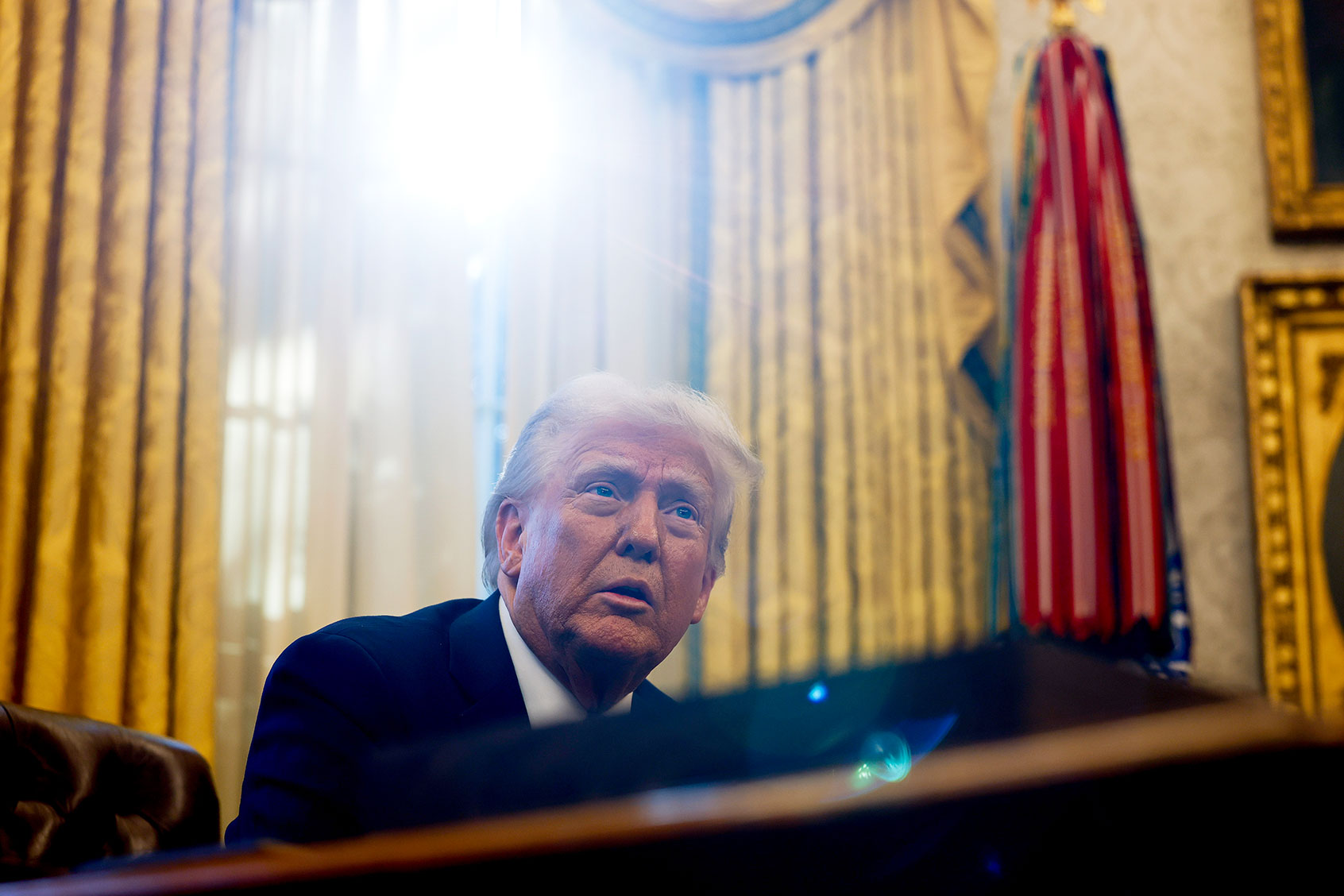President Donald Trump on Thursday moved to cancel nearly $5 billion in foreign aid and international peacekeeping funds through a rarely used move known as a “pocket rescission,” setting up a potential legal and political clash over Congress’ constitutional power of the purse.
The White House informed lawmakers Thursday night that it would claw back $4.9 billion in previously approved spending. The package includes billions in development aid through the U.S. Agency for International Development (USAID), State Department contributions to democracy programs, and U.N. peacekeeping operations in Africa.
The news was first reported by the New York Post.
Administration officials have defended the cuts by pointing to what they call wasteful allocations, with their ire particularly focused on climate programs and projects promoting what they call liberal social values. USAID was one of the first targets of Elon Musk’s DOGE budget cuts earlier this year.
A “pocket rescission” is distinct from the usual rescission process, which requires congressional approval within 45 days. By introducing the proposal so close to the September 30 end of the fiscal year, the administration argues the funds will expire automatically and will not give Congress the chance to weigh in. The tactic has not been attempted in nearly half a century and is its legality is “dubious at best,” according to NBC News.
The Government Accountability Office (GAO), the nonpartisan agency that monitors federal spending, has said flatly that pocket rescissions are unlawful under the 1974 Impoundment Control Act. That law was designed to rein in presidents from refusing to spend money that Congress had appropriated. “If Congress wanted a president to have that authority, it would need to change the law,” the GAO wrote in a post on pocket rescissions earlier this month.
Reaction to Trump’s decision was swift on Capitol Hill. Sen. Susan Collins, R-Maine, the chair of the Senate Appropriations Committee, sharply rebuked the move.
“GAO has concluded that this type of rescission is unlawful and not permitted by the Impoundment Control Act. Article I of the Constitution makes clear that Congress has the responsibility for the power of the purse. Any effort to rescind appropriated funds without congressional approval is a clear violation of the law,” she said in a statement. “Instead of this attempt to undermine the law, the appropriate way is to identify ways to reduce excessive spending through the bipartisan, annual appropriations process. Congress approves rescissions regularly as part of this process.”
Sen. Jeff Merkley, D-Ore., called the maneuver “unconstitutional,” and Sen. Chuck Schumer, D-N.Y.,. warned that it signaled Republicans’ plan to act unilaterally in upcoming budget negotiations.
“Today’s announcement of the Administration’s plan to advance an unlawful ‘pocket rescission’ package is further proof President Trump and Congressional Republicans are hellbent on rejecting bipartisanship and ‘going it alone’ this fall,” the minority leader said in a statement.
PunchBowl News’ Jake Sherman told MSNBC the move “will up the chances of a government shutdown, not to 100%, but damn close.”
“The Democrats are not going to see it in their interest to cut a spending deal at the end of September, when government funding runs out. Period. The end,” he said. “This is going to up the chances of a government shutdown in a major way. And remember, Congress cannot pass a government funding bill, cannot, without Democrats’ help in the Senate. You need 60 votes to get anything done in the Senate. So this move is throwing a bomb into the middle of the government funding process.”‘
The OMB office, whose director, Russ Vought, on Friday also took on another administration job as the administrator of USAID to “oversee” its closing, defended the decision in a post on X: “Last night, President Trump CANCELLED $4.9 billion in America Last foreign aid using a pocket rescission. @POTUS will always put AMERICA FIRST!”


